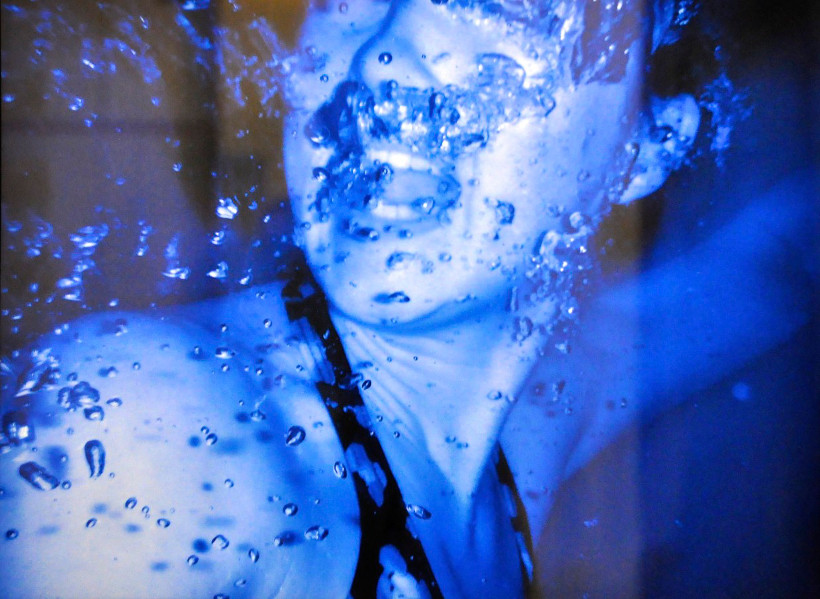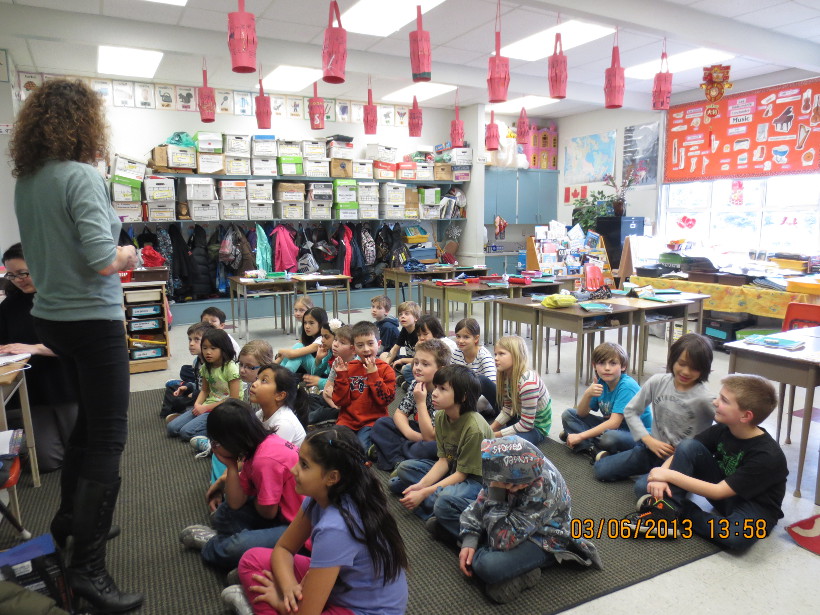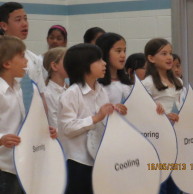Water is Essential for Survival: Who is responsible for protecting the world’s water?
Science - Grade 8
This unit of inquiry is not a recipe book but rather a launchpad to inspire new BIG IDEAS. We encourage you to use and/or modify one, or several of the BIG IDEAS below. Adapt it to the grade/ ability level of your students.
Enduring Understanding
Water systems are essential for our survival
Guiding Questions
Given that water systems are borderless, how do we decide who is responsible for protecting the world’s water?
Mind Opening
Choose or devise practices to encourage students to be open to new experiences and ways of thinking in your classroom. For example, the MindUP in-school program.
Discovery and Inspiration:
Launch the Project
• Introduce the Theme: Present the Enduring Understanding and Guiding Questions using vocabulary that is appropriate for your grade level.
• About Vancouver Biennale: Play a short video.
• Create Project Space: Brainstorm ideas to make the project theme visual and visible using bulletin boards, and/or a project corner to share relevant materials and inquiry questions and processes.
Reference Resources:
• Introduction to Sculpture and Public Art Unit Plan for information on how art has evolved over time and the unique experience sculptures and/or public art brings.
• Vancouver Biennale 2014-2016 Exhibition Theme: Open Borders / Crossroads Vancouver
• Biennale Legacy Artwork: 217.5 Arc x 13 (Bernar Venet, France)
• About Artist and Artwork (PDF)
Other Resources
National Geographic Education Website
Learning to Learn:
Art Inquiry
Make a visit to 217.5 Arc x 13 and encourage students to freely explore and interact with the art pieces individually and in groups. This Art Inquiry process enables the students to practice observing, describing, interpreting, and sharing visual information and personal experiences. Use the Art Inquiry Worksheet (PDF) to guide and capture their ideas and impressions. Customize or create your own Art Inquiry Worksheet as appropriate for your project and class needs.
Shared Insights
• Sharing Art Inquiry Experience: Ask students to share the Art Inquiry Worksheet responses in class.
• Artist Themes – Research: In small groups students rotate between information stations detailing the artist’s life and work. Station topics include: (1) education and training; (2) lifetime of artwork; (2) materials and processes; (3) beliefs and values. At each station, students answer questions and complete a task. For example, at the station “life’s work” students might plot the artist’s various installations on a map of the world.
• Artist Themes – Art and the Environment: How does the waterfront inspire 217.5 Arc x 13? How does the installation reflect the landscape? Does the artist’s work challenge the environment? If so, in what way? What other challenges to the environment might the installation highlight?
• Water Charades: Ask students to write on slips of paper every word that comes to their mind when they think of ‘water.’ Collect slips of paper and play Charades as students act out what their classmates have written down. Reflect on water’s role in our lives.
Inquiry Challenges
Have students view the film National Geographic Education: Protecting the Ocean
Who is responsible for the ocean? Ask students to discuss ocean ownership and protection.
Water Survey: Ask students to observe, inquire and record water usage in their school/neighbourhood and brainstorm ways to alter or replace water-wasteful practices.
Adopt-a-Drop: Track the journey of a water droplet. Consider the effect of melting glaciers, runoff, precipitation, and ocean currents. Where does the water you drink come from?
Water Management: Research how nations participating in the Vancouver Biennale manage and preserve their water supply. Consider nations that are ecologically distinct (desert vs. temperate rainforest vs. taiga) as well as economically or culturally distinct (developing vs. developed nations).
Sample Creation
Students and teachers decide on medium and methods to communicate their insights on their relationship with water and water’s relationship with borders. Consider use of posters, websites, montages, written essays/poems, film and audio, dance, visual arts or theatre to document the journey of a water drop, compare and contrast water management methods across borders, or propose new methods of water preservation.
Taking Action
Students can take their learning to the broader community in deep and meaningful ways by implementing and disseminating, as individuals or in groups, strategies to reduce water waste in schools, homes, neighbourhoods; to increase access to water world-wide; to preserve oceans, lakes, and rivers locally and globally, and to raise awareness of threats to water systems.
Reflection
• Teacher and students can reflect on their entire learning process by revisiting the Enduring Understanding and relevant Guiding Questions.
• How did the unit of study open inquiry, create cross–curricular learning opportunities and/or apply learning to real life situations? Has this unit of inquiry changed your opinions, values and world view? In what ways, if any, has it helped you grow as a learner?
Ideas for Cross-Curricular Access
• Arts Education: Represent the movement of water across space and time and its effect on human culture. Consider using song, dance, drama, and visual art forms of expression.
• Language Arts – Writing: Free-writing exercise on the importance of oceans. Map your relationship to the ocean. What does the ocean mean to you? Reference: National Geographic Education: Your Ocean
• Mathematics – Data Presentation: Have students calculate the amount of drinking water used by their school/community/city and compare to other schools/communities/cities/countries participating in the Biennale. Discuss reasons for the differences. How do borders affect the flow of water and its consumption?
Calculate the amount of drinkable water consumed for watering lawns in one summer within the City of Vancouver. Reference: Metro Vancouver’s Lawn Watering Regulations.
• Social Studies – Economy: Reflect on the role of water in human history, especially in early economic systems: establishing cities and trade routes. See Crash Course World History’s video, Int’l Commerce, Snorkeling Camels, and The Indian Ocean Trade: Crash Course World History #18: Watch Video
Reflect on how students are connected with the hydrosphere. How do they use water? How do we change the distribution or flow of water? What do we put into water? Are there human activities that could negatively affect your local source of water? Reference: National Geographic Education: Our Hydrosphere
Credits
Written by: Louise Chan, Frank Lo and Natasha Sharpe. UBC 2013 Secondary School Teacher Candidates
Edited by: Jennifer Massoud, Secondary School Teacher
©2013 Vancouver Biennale


